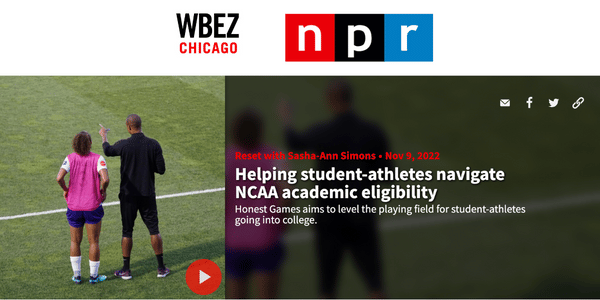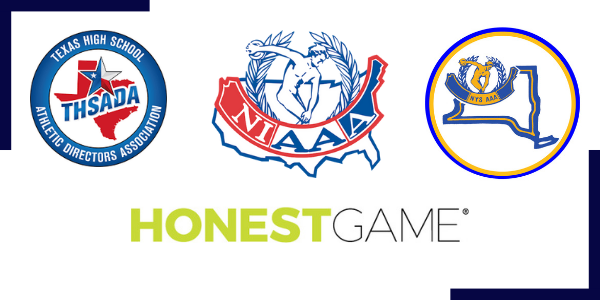Advice to All High School Student-Athletes
Updated on Aug 8, 2023

I am fortunate to have spent close to 25 years on a college campus in the Athletic Department, but my time was not spent on the court or on the field. Instead, I spent my time one-on-one with student-athletes in the Academic Advising and Student Success Departments. I spent my entire day (weekends too!) making sure student-athletes concentrated on their academics and earned their college degree. That meant lots of time with these student-athletes in study hall, tutoring them, and speaking with their college professors about their grades or classes that were missed due to games and travel. The hardest part of your collegiate career occurs in the first 3 months as you transition to college. The reality is that for a student-athlete, the college experience is very different from your high school setting. Starting to create good habits in high school will help you ease into collegiate student-athlete life and allow you to focus on both your academic and athletic careers. Here are some tips to help as you strive to become a successful collegiate student-athlete.
1. Understand how you learn – spend the rest of your high school career figuring out why you succeed in certain classes, and why you struggle in others. Do you like multiple-choice tests, or are you much happier when you get to write an essay? Can you sit down and write a multiple-page paper or do you need an outline or bullet points to help guide you along the way? Can you take notes if your teacher is speaking in front of the classroom teaching from a presentation or do you need to follow along with an outline? Do you have the ability to sit in a classroom for 3 hours for a class that meets once per week, or would you be better with a class that meets for a shorter time, multiple days per week? Take a moment to reflect on why you have better grades in some classes than others. These are things that will help inform your academic advisor about how you learn. They will then use this information to guide you throughout college.
2. Practice time management on your own – in high school your teachers may coordinate when you have tests so they don’t all happen on the same day. Maybe they even plan around when your team has a big game! This will not happen in college. Think about what happens when you have a test on the same day a big project is due for another class. Can you do well in both? How did you organize your time to focus on both subjects? Did you finish one first and then move on to the second, or do you go back and forth between them? How do you organize all of your responsibilities? Do you keep a planner with academic and athletic events in one location, or is your game schedule on your phone but your academic schedule is in your backpack? Do you tell your teacher that you’re missing a test for a game or do you rely on your coach or parent to do that? In college, you will need to organize all of your academic and athletic responsibilities on your own, so that you can anticipate when conflicts will happen and how you will complete all of your requirements when they are due. College professors will not allow you to use athletics as an excuse as to why you didn’t complete an assignment or why you weren’t in class for a test. Practice those skills now so it’s a lot easier in college. If you are a Fall student-athlete, you won’t have time to learn these skills once you’re on campus. Once you master them, it will be too late!
3. Be honest about your academic ability – you know how you learn and what trying your hardest is like. On your recruiting visit, you should meet with an academic advisor who works with student-athletes. If you get this opportunity, please be honest about your academic ability and needs. Being transparent upfront will help them work with you later – they don’t know what you can and can’t do unless you are honest. If you have trouble finishing exams, tell them. If you didn’t do all of your homework in high school, tell them. If you’re used to your teachers helping you before or after school or utilize a resource room for assistance, tell them. Engage in conversation with the academic advisors when you have that chance. Ask what services that college has for you (assigned study hall, tutoring, academic progress monitoring with your professors, academic space within the Athletic Department to study) and let them know if you will need to utilize the college’s Academic Accessibility Center if you have learning needs. Your relationship with your athletic academic advisor should be open and honest from the start.
4. Practice asking for help and don’t wait until it’s too late – listen to your gut! When you know you have a math test does your stomach get tied in knots? When you start a research paper are you automatically overwhelmed? If you feel this way now, it will only get worse in college. Ask for help early if you struggle with a subject. It’s perfectly fine to have a tutor. If you wait too long to ask for help, you might run out of time and that problem could have been avoided earlier. Make use of all the extra review sessions or study groups now because those are also available in college. And practice speaking up – your academic advisor doesn’t know you’re struggling if you keep quiet.

As a former Senior Associate Athletic Director at the NCAA Division I level and with more than 20 years of experience in collegiate athletics, Courtney has advised thousands of student-athletes through the college recruiting and eligibility process for college sports. Interested in virtual counseling with Courtney? Sign up here.



